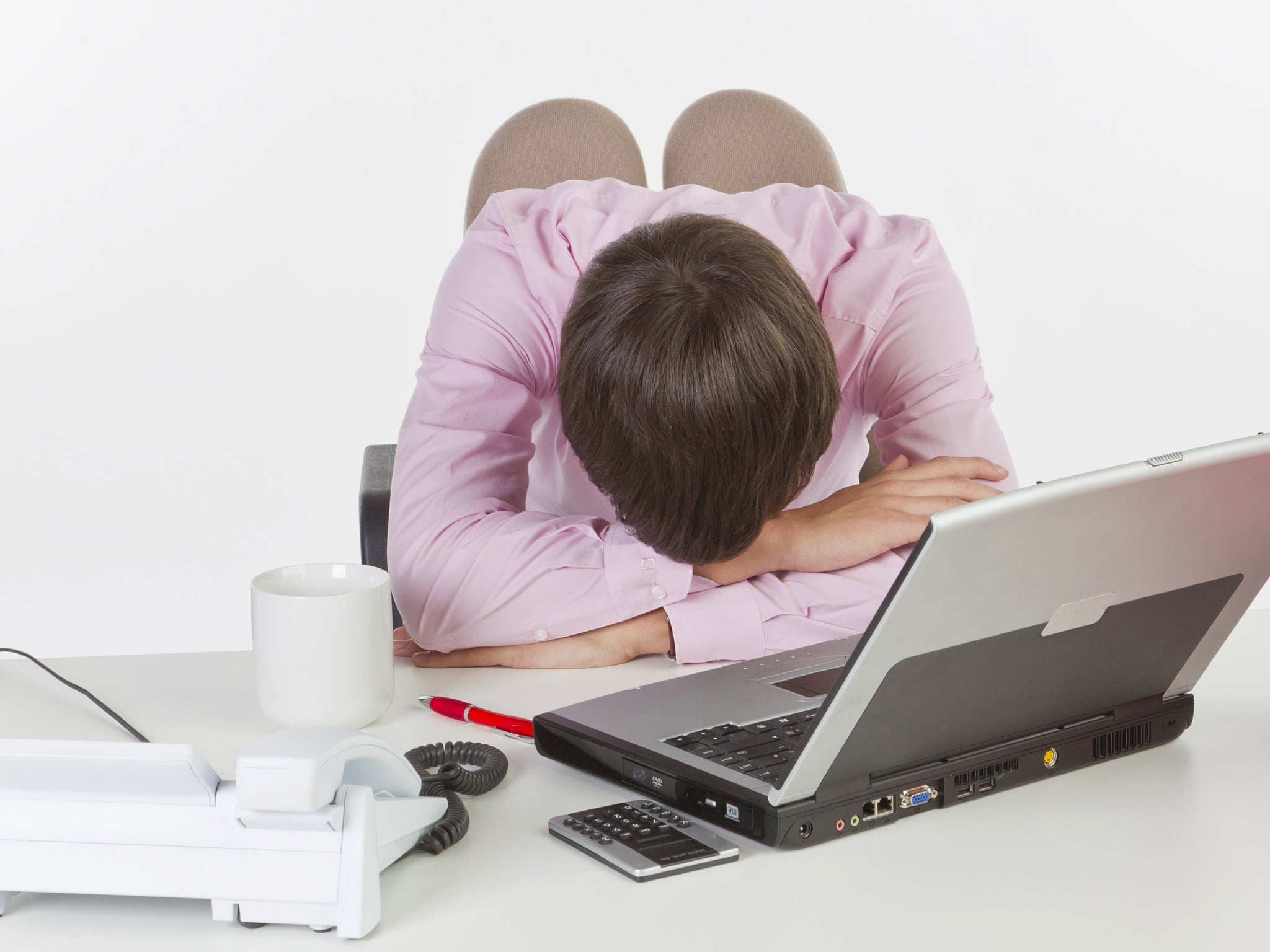Why we should embrace the 9-to-5
Working just eight hours a day is becoming increasingly difficult in the connected world

Your support helps us to tell the story
From reproductive rights to climate change to Big Tech, The Independent is on the ground when the story is developing. Whether it's investigating the financials of Elon Musk's pro-Trump PAC or producing our latest documentary, 'The A Word', which shines a light on the American women fighting for reproductive rights, we know how important it is to parse out the facts from the messaging.
At such a critical moment in US history, we need reporters on the ground. Your donation allows us to keep sending journalists to speak to both sides of the story.
The Independent is trusted by Americans across the entire political spectrum. And unlike many other quality news outlets, we choose not to lock Americans out of our reporting and analysis with paywalls. We believe quality journalism should be available to everyone, paid for by those who can afford it.
Your support makes all the difference.The 9-to-5, with its notions of boredom and normalcy, has long represented a life not lived. But in a world that is connected 24/7, where work is only a few clicks away, perhaps we should start to see the nine to five as a form of liberation.
That’s the view of Carl Cederstrom of The Atlantic, who noted that annual working hours were in steady decline for a century in the US. On average, US employees worked about 3,000 hours a year in 1879, which decreased to 1,900 in 1973. But since 1973, the trend has reversed. The average worker has added 180 more hours to his annual working schedule.
Working just eight hours a day is becoming increasingly difficult in the connected world. A new study by wifi network iPass revealed that mobile technology is taking over some workers lives, with the majority using their device during their free time.
Over 35 per cent of people surveyed said they check their email before they do anything else in the morning, while 17 per cent waited to be dressed. Most startling of all: some 38 per cent of the respondents said they woke up during the night to check their emails.
According to another report by Staples Advantage Workplace Index, surveying more than 2,600 office workers in the US and Canada, more than half of the employees were experiencing burnout from working long hours.
The regular work day is changing as more and more employers start to embrace flexible hours. Some experts have even called for the working week to be shortened. But with mobile technology making it possible for anyone to be on call, the drudgery of the 9-to-5 doesn’t sound so bad after all.
Join our commenting forum
Join thought-provoking conversations, follow other Independent readers and see their replies
Comments